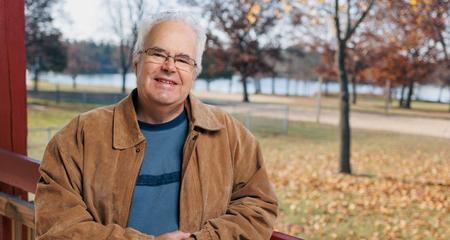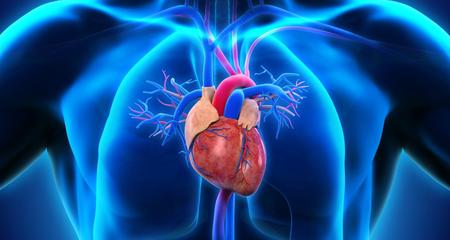Heart disease is the leading cause of death for men and women, and coronary artery disease is the most common type of heart disease in the United States. It can lead to angina or chest pain, which can indicate a heart attack. Over time, coronary artery disease can also lead to arrhythmia or heart failure.
If you think you or someone else is having a heart attack, call 911 right away. Here is a list of heart attack symptoms and what to do while you wait for help.
Coronary artery disease is caused by plaque buildup or calcium deposits in the arteries of the heart. Plaque is made up of cholesterol, other fatty substances and fibrous tissue. The buildup can develop gradually over many years and can eventually block blood flow in the arteries leading to the heart.
In its early stages, coronary artery disease will often have no or only subtle signs and symptoms. People who do have symptoms may experience them very differently. Left untreated, coronary artery disease can lead to an increased risk of heart attack or stroke.
A noninvasive heart scan can detect and measure the amount of calcium deposits in your arteries — helping your doctor determine if you have early signs of coronary artery disease before symptoms appear.
Risk of Developing Coronary Artery Disease

Several factors increase the risk of developing coronary artery disease, and controlling these factors can help reduce a person’s risk:
- Smoking
- Obesity
- High cholesterol (lipid disorders)
- High blood pressure
- Diabetes
- Inactive lifestyle
Our specialists work together to deliver the best and most appropriate care options for each patient with coronary artery disease. We strive for excellent patient care to deliver the best possible outcomes, avoiding unnecessary tests and treatments.
Chronic Total Occlusion (CTO)

Chronic total occlusion (CTO) is a condition where arteries are 100% (completely) blocked — and may have been blocked for months, years or even decades. Risk factors are along the same lines as those listed above. Symptoms can include:
- Shortness of breath
- Difficulty breathing
- Chest pain/discomfort/pressure/tightness
- Exercise intolerance
- Lack of energy
CTO diagnosis follows the same set of tests as other forms of coronary artery disease. Once diagnosed our team will work with you to determine the best course of treatment. Not all blocked arteries need to be cleared and stented, and not all patients are candidates for bypass surgery. We offer traditional coronary artery bypass graft (CABG) via open heart surgery and via minimally invasive surgery. We also offer minimally invasive stenting procedures using catheters, via our Complex and High-Risk Coronary Interventions Program.
Coronary Artery Disease Can Lead to Other Heart Conditions
People with coronary artery disease, including CTO, are at risk for:
- Angina – Angina is chest pain or discomfort that occurs when the heart doesn’t get enough oxygen-rich blood.
- Heart Attack – For some people, a heart attack is the first sign they have coronary artery disease. A heart attack occurs when the blood supply to the heart is stopped or cut off by plaque buildup or a blood clot in the arteries. A heart attack may also be called a myocardial infarction (MI).
Over time, coronary artery disease, including CTO, can damage the heart muscle and lead to other serious heart conditions including:
- Arrhythmia
- Heart failure
Academic Medicine Benefits
Our heart and vascular physician team is skilled in diagnosing, treating and managing coronary artery disease in all its forms.
Coronary artery disease (CAD), also called coronary heart disease, occurs when the arteries that supply blood to the heart become blocked or narrowed due to plaque buildup or blood clots. This narrowing is also called atherosclerosis, or hardening of the arteries. Over time, coronary arteries can become completely blocked, causing a total coronary occlusion. Without treatment CAD can lead to other heart problems, including heart failure, arrhythmia or a heart attack (myocardial infarction or MI).
Multidisciplinary Team for Each Patient
Our physicians have deep levels of expertise in their specialty, and then collaborate to deliver the best patient care and quality outcomes. In addition to general cardiology, cardiologists specialize in heart valve disease, heart failure, electrophysiology and interventional cardiology. They collaborate with other heart and vascular specialists – vascular and interventional radiologists, interventional cardiologists and cardiac surgeons. Working together, our multidisciplinary team of physicians, nurses, therapists and medical professionals offer treatment approaches designed for each individual patient. Read more about our exceptional staff.
Emergency Care and Door-to-Balloon Time
Heart attacks are a major risk for those with coronary disease. One vital measure of heart attack care is “door-to-balloon time,” which refers to how quickly a team is able to get blood flowing again in patients who have had a cardiac event caused by blocked arteries. The accepted standard has been 90 minutes or less, but we set our own goal of 60 minutes or less. Read more about our emergency care.
Excellent Outcomes, Solid Relationships
Heart and vascular physicians work closely with referring physicians, keeping them informed regarding consults, treatment and follow-up care. And, as part of an academic medical center, we continually monitor outcomes to always improve patient care.
Advanced Diagnostics
Several tests may be used to diagnose coronary artery disease, along with a thorough physical exam and medical and family history.
Common tests include:
- Echocardiography,
- Stress testing
- Cardiac MRI
- Advanced-multi-slice CT scanning.
Treatments for Coronary Artery Disease
Our physicians use the latest technology based on research to diagnose and treat coronary artery disease. Treatment may include lifestyles changes, medications and non-surgical procedures — such as coronary stents and cardiac rehabilitation. Cardiac surgeons are skilled in all forms of cardiac surgery, including coronary artery bypass grafting and endovascular vein harvesting. Read more about the different treatment options for coronary artery disease.
Research
As members of an academic medical center, heart and vascular physicians are up-to-date on the latest research findings and treatment techniques. Our patients also have access to significant local and national research studies and clinical trials.
Virtual Visits Are Available
Safe and convenient virtual visits by video let you get the care you need via a mobile device, tablet or computer wherever you are. We'll assess your condition and develop a treatment plan right away. To schedule a virtual visit, call 414-777-7700.
Recognized as High Performing by U.S. News & World Report
Froedtert Hospital is recognized by U.S. News & World Report as high performing in three adult specialties and 16 procedures and conditions, including heart bypass surgery.More to Explore




